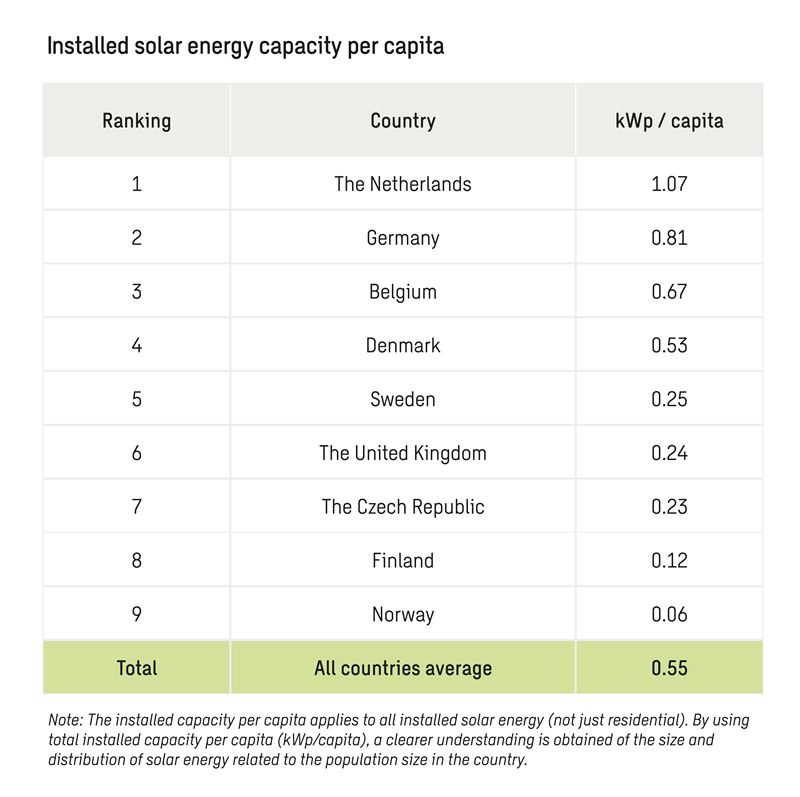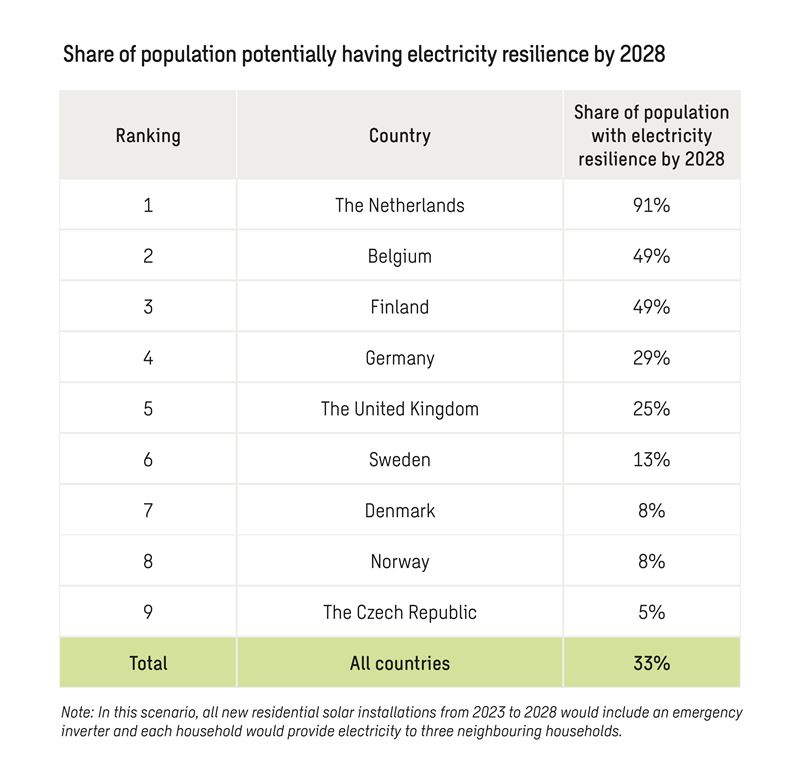SWECO
Enhancing electricity system resilience: Netherlands holds best potential, the Nordics least prepared

During power outages, low-capacity emergency power can sustain vital functions such as mobile communication between citizens and authorities, water access or charging basic appliances. One promising solution is emergency power generated from residential solar panels in combination with emergency inverters during daytime or hybrid inverters with full backup batteries.
“With increasing extreme weather events and external threats, energy system resilience is needed to mitigate risks from prolonged blackouts. Citizens as well as authorities must explore strategies for safeguarding easy access to electricity, both for communication purposes and for maintaining basic societal needs,” says Conny Udd, Division Manager Energy & Industry, Sweco Sweden.
Inverters play a critical role when, due to safety considerations, standard grid-connected solar energy plants cease to produce electricity during power outages. Emergency inverters, designed to connect smaller loads without the need for batteries, enable the operation of essential appliances during power outages. Hybrid inverters, which integrate batteries or other forms of storage, offer a more comprehensive solution but are considerably more expensive.
The analysed countries have witnessed growing adoption of solar power systems driven by the ongoing energy transition, decreasing solar prices, subsidies and increased regulations. Germany is the leader in installed solar capacity, while the Netherlands has the highest capacity per capita. Norway currently lags in solar power adoption, together with Sweden and Finland.
“By embracing residential solar power solutions, more countries can fortify their energy systems for a small cost – even in challenging circumstances,” adds Conny Udd.
Read the full study: Solar Energy Resilience – Emergency power from solar panels during blackouts
About the study
- Sweco has analysed the possible electricity resilience for the next five years in nine European countries by examining the future development of solar energy as well as the cost of and possible loads from emergency power solutions during power outages.
- The study also explores the theoretical potential of enhancing resilience in critical infrastructure, such as water management and mobile communications, by integrating solar energy solutions or siting them near solar power plants.
- Countries included in the study: Belgium, the Czech Republic, Denmark, Finland, Germany, the Netherlands, Norway, Sweden and the UK.


| Datum | 2023-06-20, kl 08:00 |
| Källa | Cision |
| Press release | |
| Residential solar panels | |
| Share of population potentially having electricity resilience by 2028 ny | |
| Installed solar energy capacity per capita Illustration Sweco |